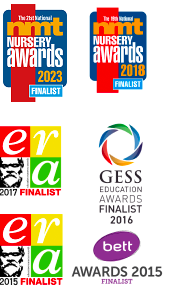Who are Naturally Learning?
Naturally Learning are a group of five nurseries in Cornwall that started as an outdoor provision and wanted to incorporate Forest Schools into its curriculum. The driving force behind the company’s focus on sustainability was owner Mandy’s son, Tom, who grew up with The Scouts and developed a deep love for the outdoors. Today, he serves as the Director of the business.
Naturally Learning is committed to sustainability and incorporates it into every aspect of their ethos. Their values revolve around being child-centred, building meaningful relationships, being authentic, and promoting sustainability. They believe in teaching skills that are essential for a lifetime, including those related to sustainability.
Why Sustainability Matters, Especially in Early Years Education
The impact of climate change has become increasingly apparent, with record-breaking heat and other extreme weather events becoming more frequent. Early Years education plays a crucial role in shaping young children’s minds and providing them with information about the world. By teaching sustainability in a fun and enjoyable way, Early Years educators can help children understand the importance of protecting the environment and equip them to be agents of change in the future.
With approximately 63,000 registered childcare providers in England alone, if each one made sustainable changes, it could have a significant impact. For example, reducing the use of millions of wet wipes that end up in landfills each year can make a difference. It is essential to teach children from an early age about the environment so they can develop a sense of responsibility and take action to protect it.
Identifying Your ‘Why’ when Integrating Sustainability into Early Years Education
While it may be easy to continue unsustainable practices, it is much harder to choose to implement eco-friendly practices within an Early Years setting. Early Years educators must consider their reasons for making a difference. Mandy, the founder of Naturally Learning, found her motivation in her grandchildren. She wants to create a better world for future generations. Understanding your ‘why’ is crucial in sustaining the commitment to integrating sustainability into an educational setting.
What Sustainability Looks Like in Practice at Naturally Learning
Curriculum: Naturally Learning has developed its own curriculum that is seasonal and nature-based, aligned with the Early Years Foundation Stage (EYFS). They incorporate seven areas of learning, including nature, STEM, local connections, and the promotion of an authentic and immersive learning experience.
In Practice: Their monthly themed approach, like January’s focus on birds, ensures that even the youngest participants can engage. Real books, picked up from charity shops, replace laminated sheets, fostering a love for learning from an early age. This sustainability focus extends to all ages and areas of learning within their settings.
The Environment and Resources: Naturally Learning’s settings are mindful of nature, using recyclable, repurposed, and ethical resources to design indoor spaces that reflect their outdoor and natural ethos. Immersing children in nature, using second-hand resources from charity shops, and incorporating found items like old baths for food-growing gardens exemplify their dedication to sustainability. They utilise various materials to foster an environment of open play and creativity.
Food: Food is another important aspect of sustainability at Naturally Learning. They prioritise using local suppliers and seasonable food to reduce food miles. They introduce real cutlery and crockery to children from an early age, encouraging sustainable practices.
Embedding Sustainability: Sustainability is woven into every aspect of the business, from uniforms sourced from a local sustainable company, Rapanui, to mindful gift-giving practices. To embed sustainability further, the company’s ethos extends to staff and parents. Parents are asked to support the sustainable ethos, such as avoiding single-use wet wipes and using reusable bags for wet or dirty clothes, and staff are encouraged to continue their sustainable efforts outside of work.
Naturally Learning exemplifies the importance of integrating sustainability into Early Years education. By addressing climate change, and teaching children to respect and love the natural world, Early Years educators can make a significant impact. Naturally Learning’s commitment to sustainability is evident in their curriculum, environment, resources, food practices, and the values they instil in staff and parents. These efforts create a holistic approach to sustainability that not only benefits the environment but also nurtures the future generation of responsible global citizens.

